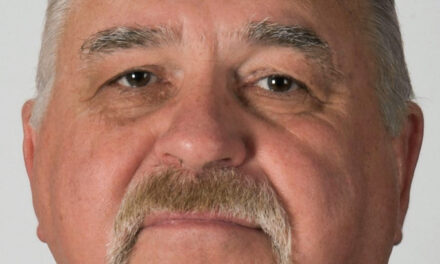By Kara Thompson,
Special to the AFRO

Mental health is just as important as your physical health. Just like finding a good primary care doctor, it’s important to make sure your mental health professional is a good fit for you and your situation.
Below you find top tips from several mental health professionals on how to start the process of finding the right therapist for you.
- Start by doing a Google search.
While the search for a therapist or other mental health specialist can be a daunting process, the first step may be right at your fingertips: Using the Internet.
“The power of Google is very important,” licensed clinical social worker Lakisha Shears said. “So, when we’re looking at therapy for Black folks, I tell them to always go to therapyforblackgirls.com, or go to therapyforblackmen.org, and then I have them doing Psychology Today.”
Through these sites, licensed medical professionals located in your area will pop up, and you have a chance to explore to find what might be a good fit for you.
- Understand the difference in titles and figure out what type of professional is best for you.
Within the mental health field, there are many different people with many different specialties — social worker, therapist, psychologist, psychiatrist — it can be hard to know what each profession specializes in, and which you want or need to see for your mental health.
“The easiest way to define it is biopsychosocial,” licensed clinical psychologist Dr. Nakieta Lankster, said. “The bio is the biology part, that would be a psychiatrist; they prescribe medication. Psychiatrists don’t do any form of therapy, or regular interventions.”
“The psycho is the psychological treatment part, which would be psychology. That is your treatment for your psychological issues,” she continued. “And then social would be social work. They focus on how you are engaging in your environment.”
Some professionals even have specific areas of study that they focus their work on, which may be helpful if you have a certain reason for why you’re seeking therapy.

“You also can think about, is there a specific specialty that could be helpful to you?” Kenya Ford, Clinical Psychology Psy.D., said. “Do you notice that you’re having focus issues and there may be potential for ADHD, or have you experienced a lot of traumas that you’re ready to work through? Or do you need a space to just vent and it doesn’t really matter about their specialty.”
- Talk to or consult with a few different professionals.
While picking the first name you see when scouring the internet for therapists near you seems like the easiest choice, they may not end up being the best fit for you. Getting a feel for a few different practices and people can help you to narrow down your options.
“When people call me, I require them to call at least two to three other people,” said Shears. “I want them to ask questions, like ‘what is your philosophy on therapy? What is the type of insurance that you take? Tell me a little bit about you and tell me a little bit about your practice.’”
Licensed therapist Montrella Cowan agrees.
“I want to say that our therapy is like dating,” she said. “You want to find a good match.”
- Make sure you feel comfortable with whoever you chose to see long-term.
Because of the private things shared between a patient and their therapist, it is important for there to be a level of comfort and trust in the relationship in order for it to be a good and productive experience.
“You should be able to talk about anything you want, and they should not be judging you,” Cowan said.
Shears notes that many people want to go to a therapist that looks like them, hence why she tends to recommend sites that connect patients with Black mental health professionals. Though given the small percentage of therapists who are Black, this can be hard to do, and some people may not see that as very important when finding a therapist.
“I definitely support people finding therapists that aren’t exactly the way that they are, because you’re exposed to other things and you can learn from different people who have different walks of life,” Ford said. “However, when there is a racial match or you all belong to a similar group, say it’s the LGBT population, there are certain nuances that you don’t always have to explain.”
- Understand insurance and how you’re going to pay.
Therapy can be expensive, but your insurance can really make a difference. That’s why Shears always makes sure any potential new client of hers understands what their insurance does and doesn’t cover, what their copays and deductibles are, and the options available to them.
“Your money, which is your insurance card, is your power,” she said. “You can go anywhere in the rainbow to get care, and if you’re not provided with the best care, guess what? You take your money — which is your insurance card — and you go somewhere else.”

Even if you don’t have insurance, therapy is still an option for you; you just have to pay the fees out of pocket, according to Shears. If this is your situation, it is still a good idea to ask a potential therapist about their payment process.
- Once you’ve settled on someone, test the waters for a few weeks before a final decision on whether or not to stay with them.
“At least try it for the first month,” Shears said. “It’s like a diet. You’ve got to give me at least three tries before you[‘re] like ‘I do not like that broccoli’.”
Just as these tips are helpful when starting your therapy journal, there are a few things you should also try to avoid.
“One thing not to do is to try to get yourself together before coming,” Cowan said. “Therapy is like church: come as you are. A lot of people try to really honestly get themselves together before they come, which only delays that means to help or perpetuates the suffering in silence.”
She also said that people should not be trying to do therapy on their own. Mental health should be just as much a priority as physical health, and that comes with seeking professional help when needed.
“Therapy is a safe place for you to express your challenges without judgment and learn how to better navigate them. So, reach out,” Cowan said. “Reach out for help.”
Help us Continue to tell OUR Story and join the AFRO family as a member –subscribers are now members! Join here!
The post Top things to consider when looking for a therapist appeared first on AFRO American Newspapers .











